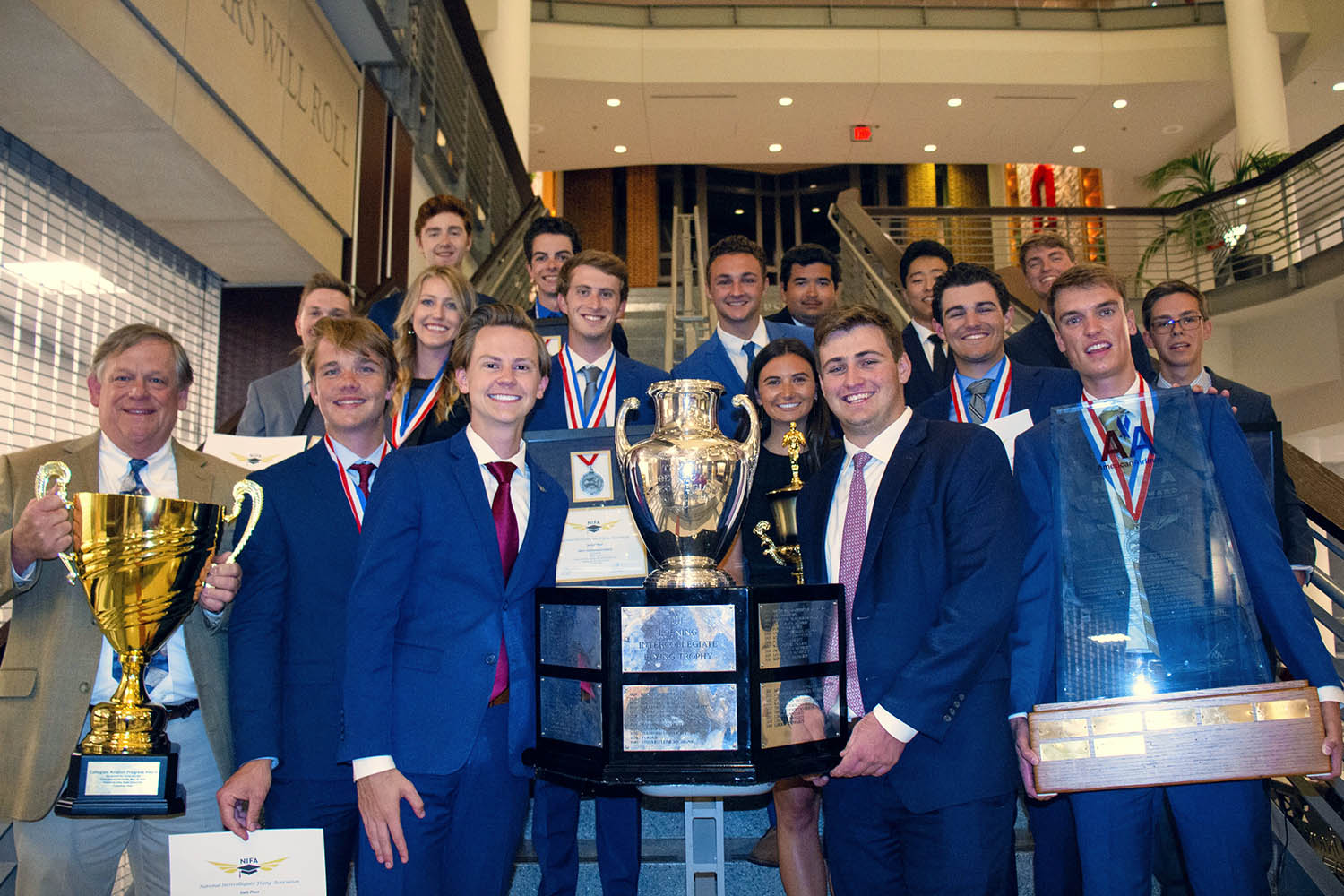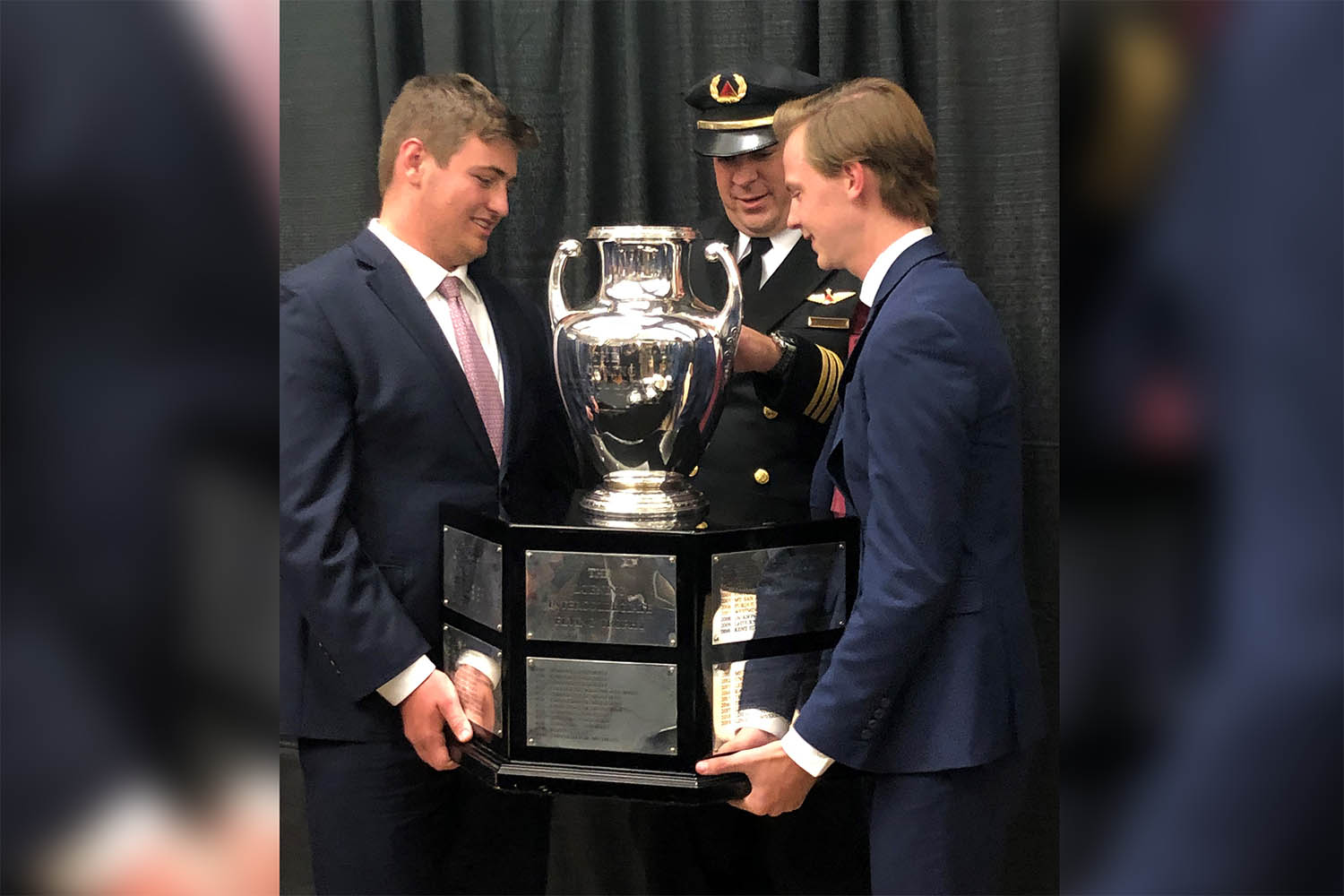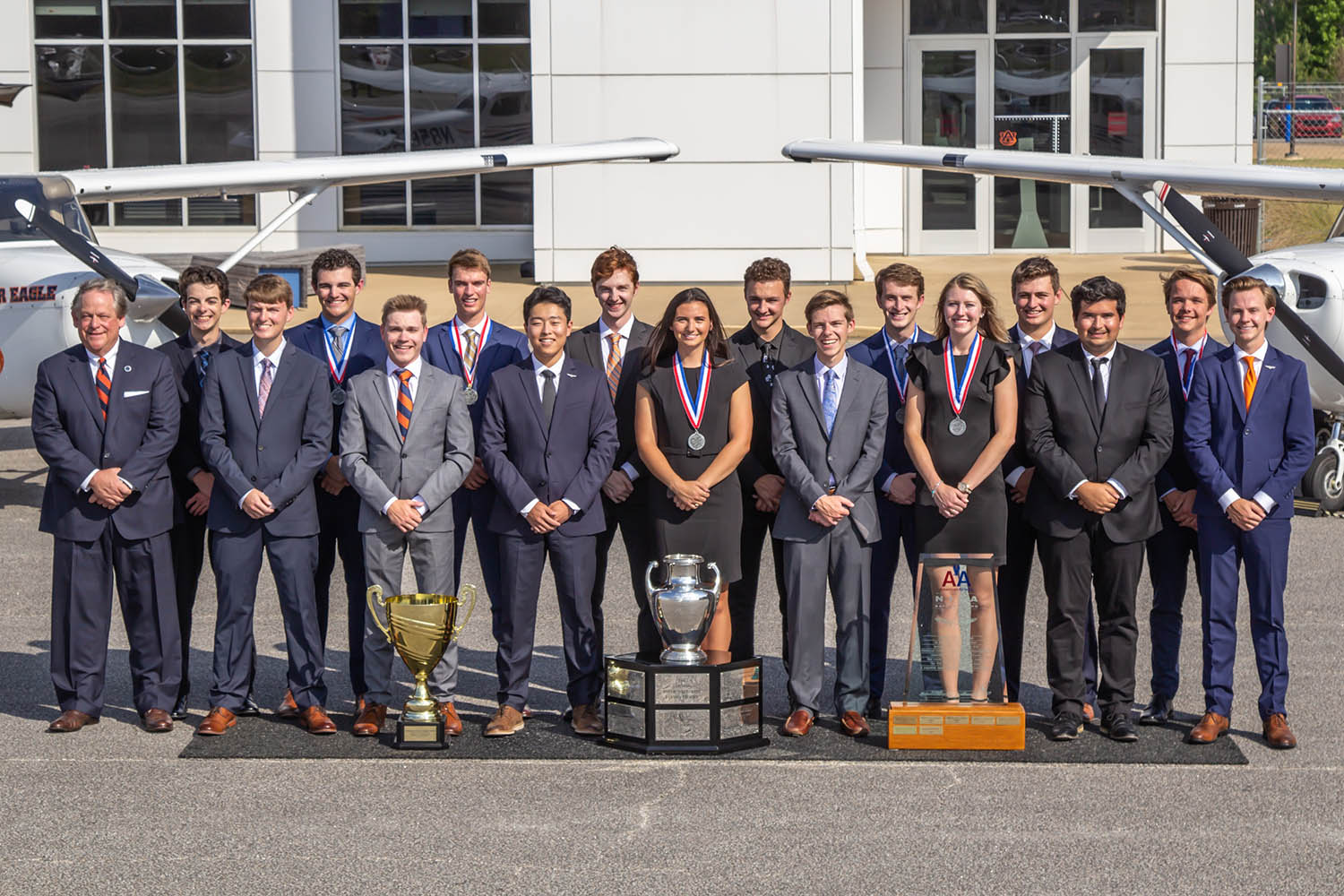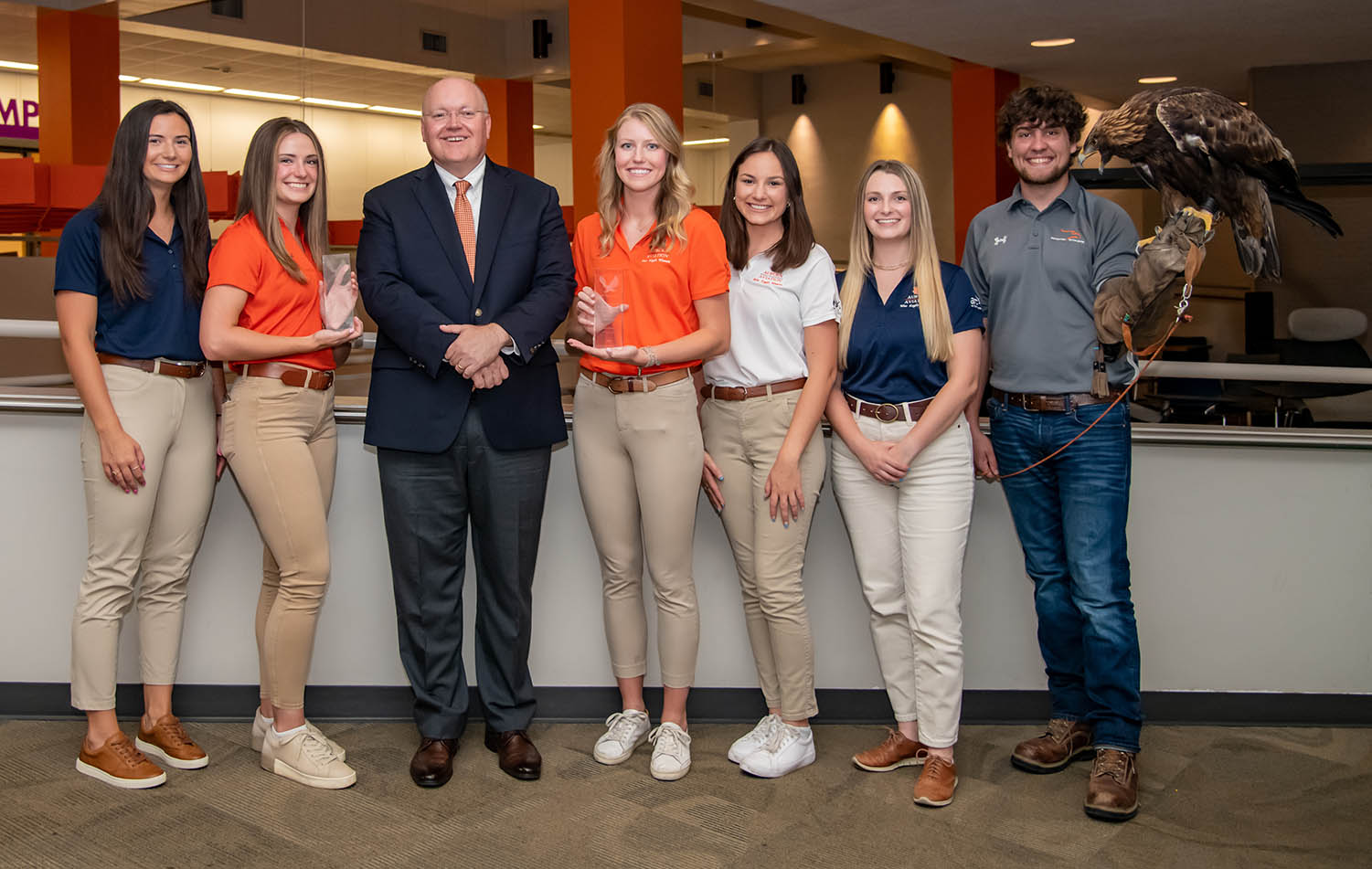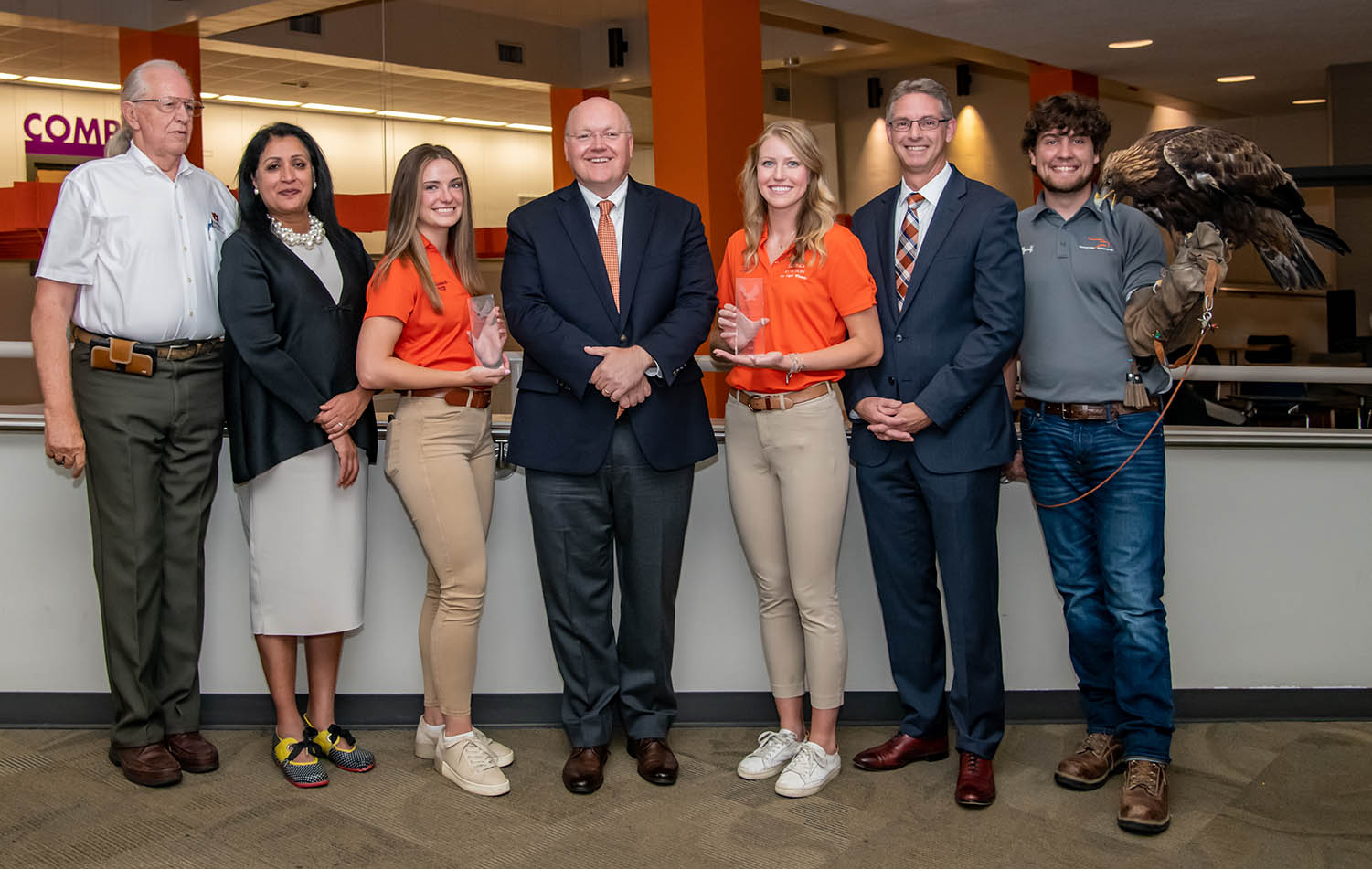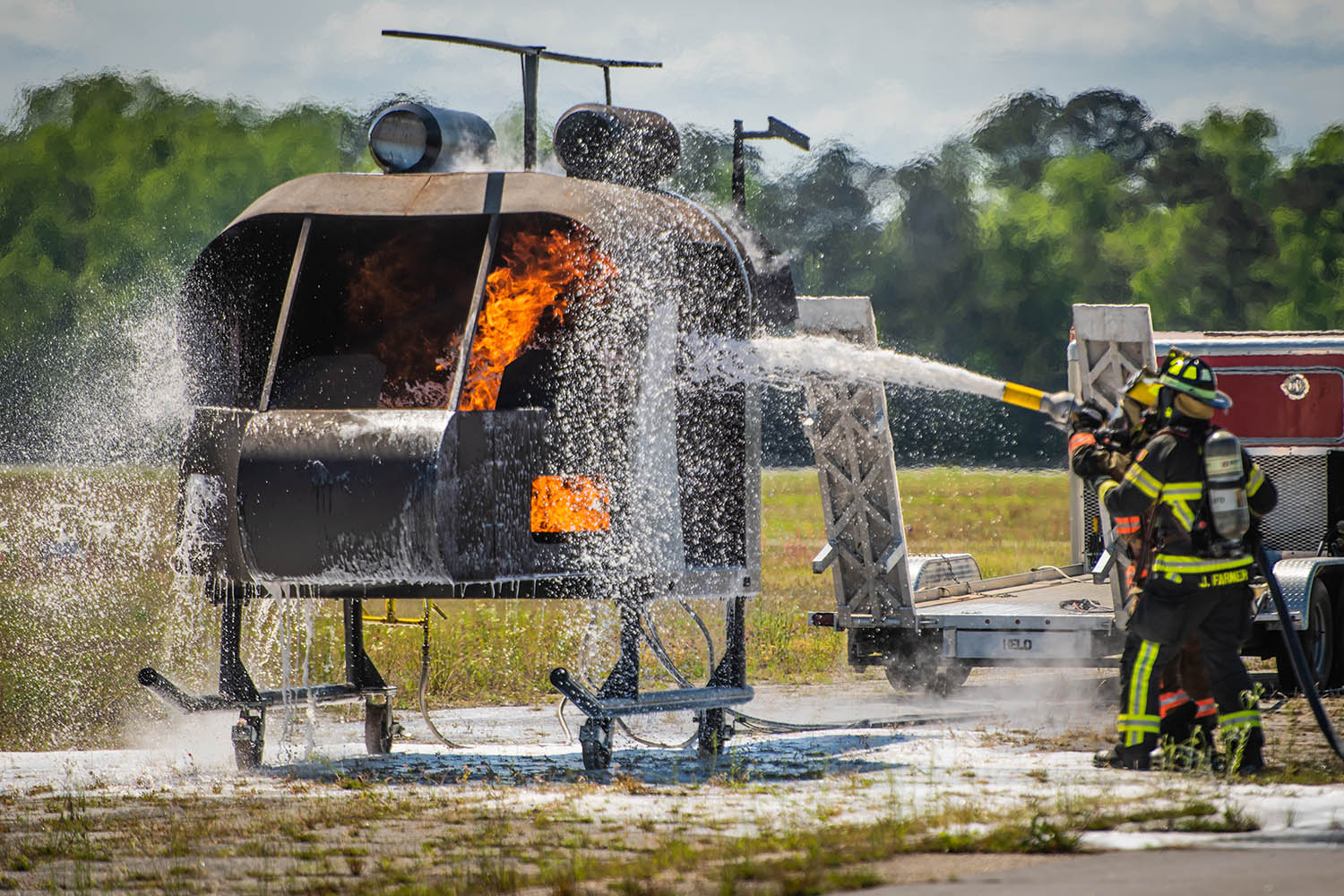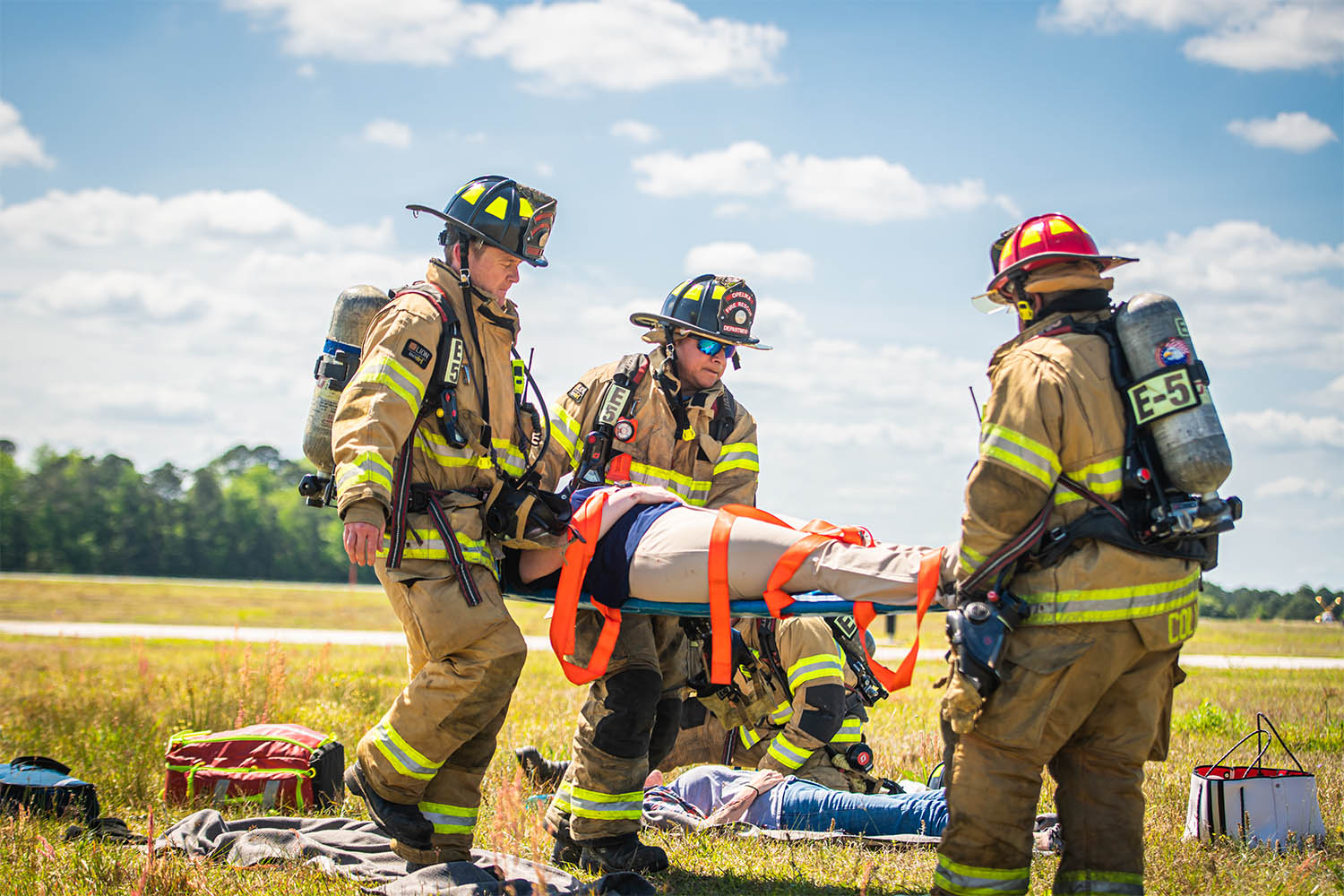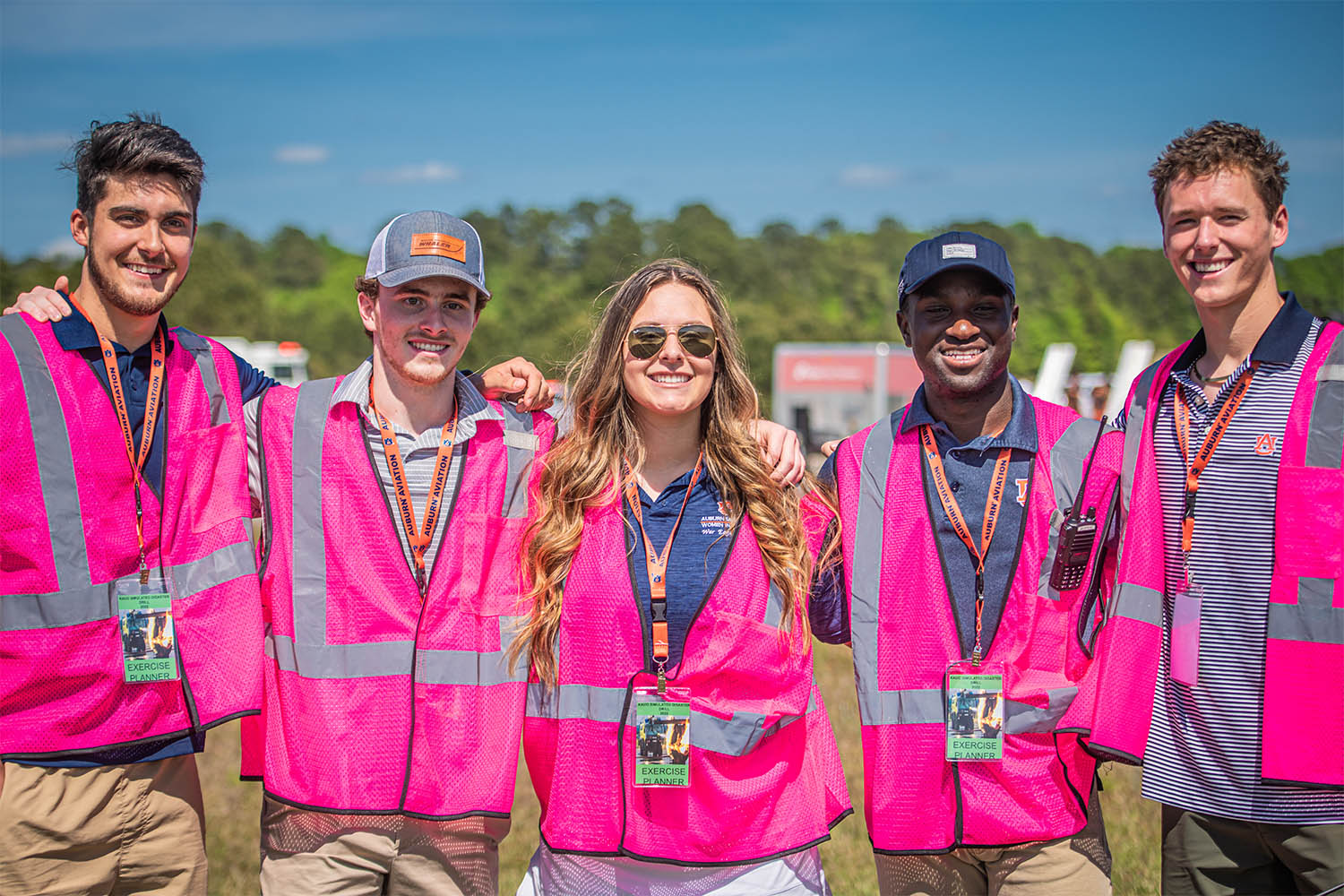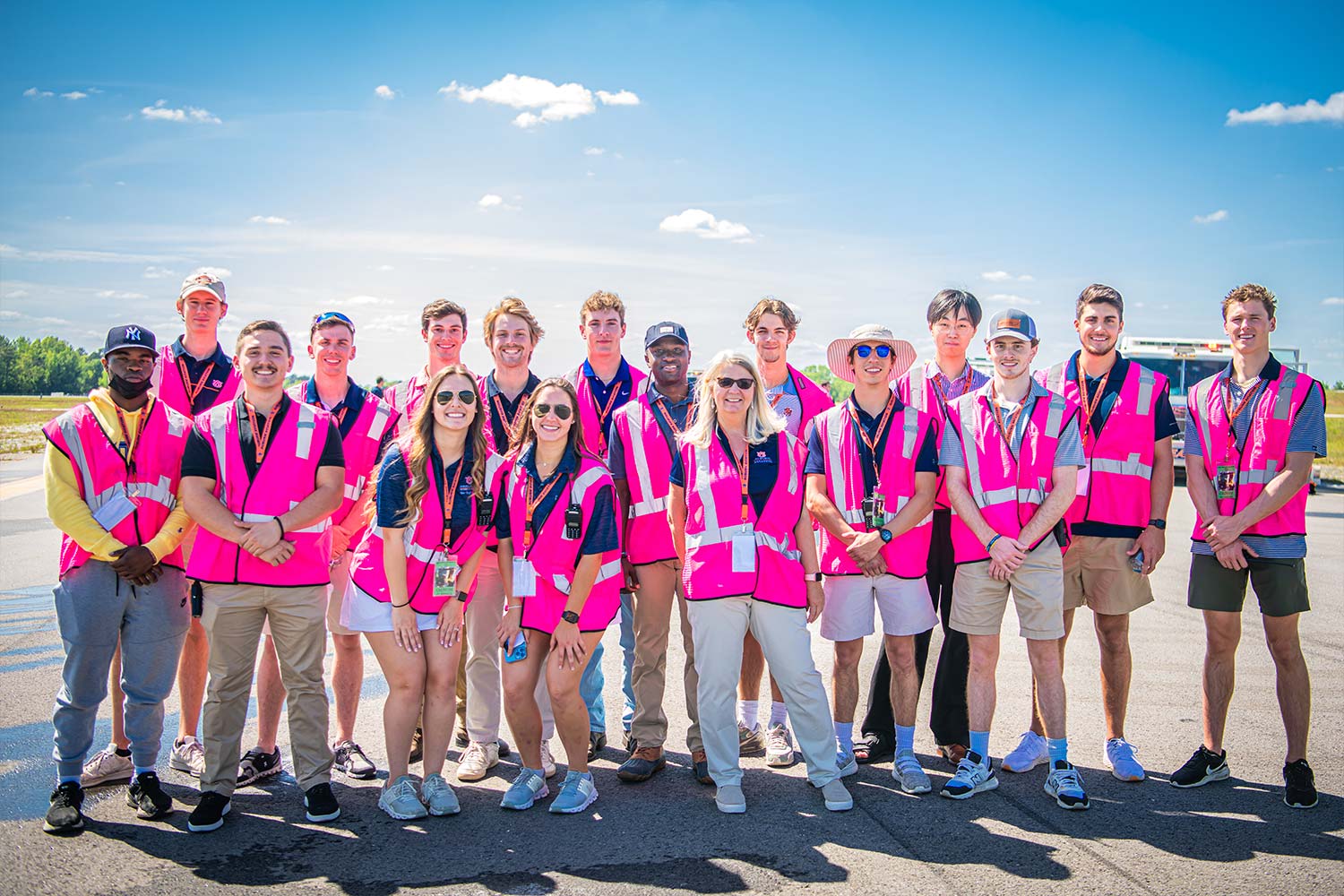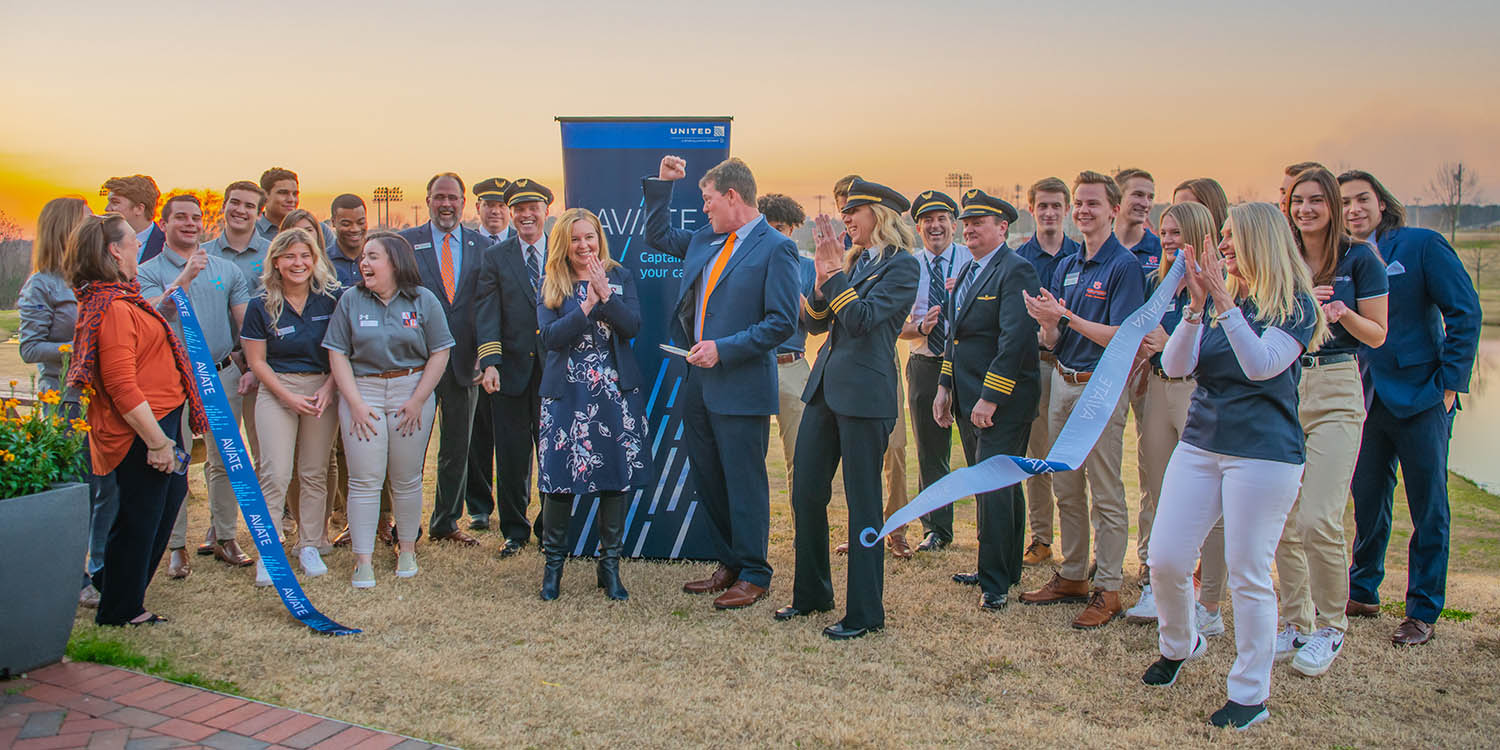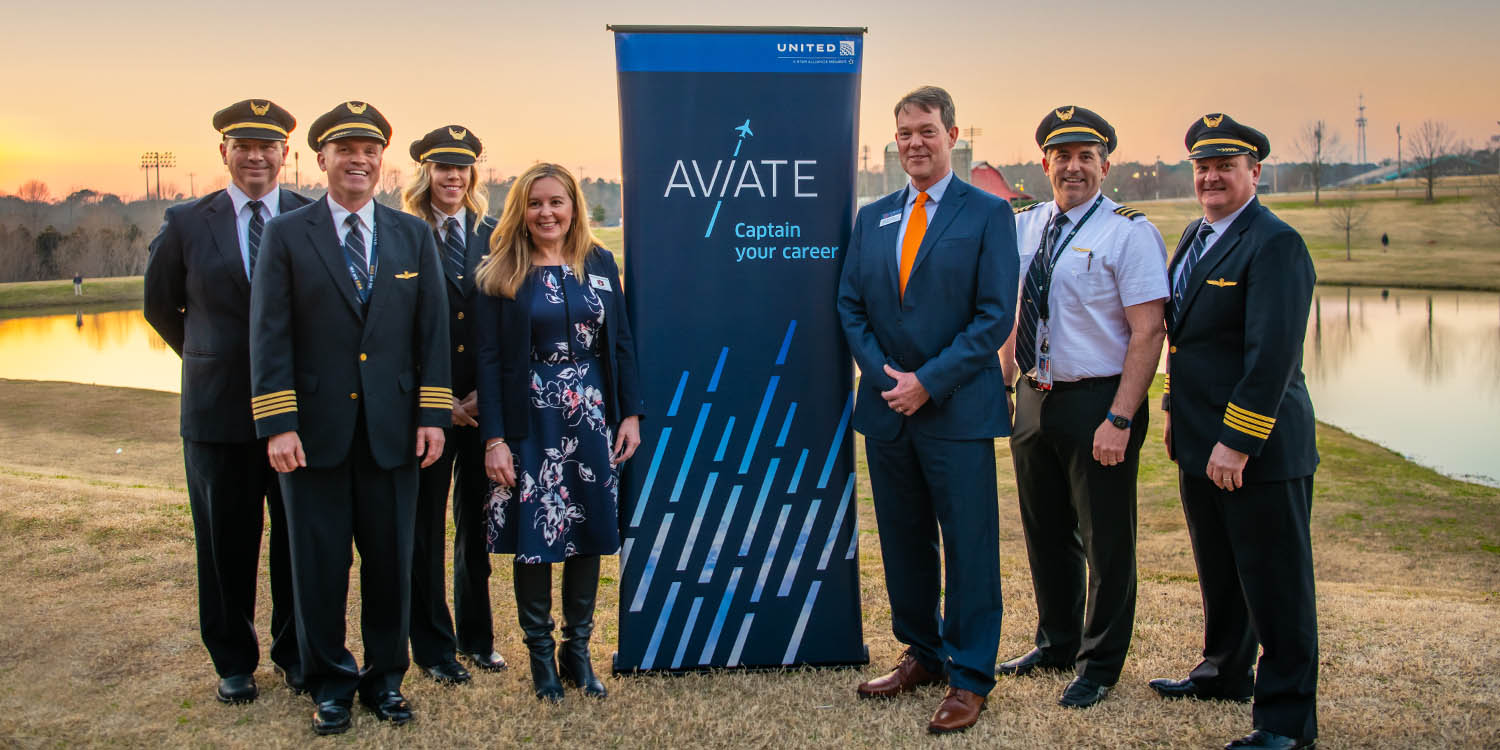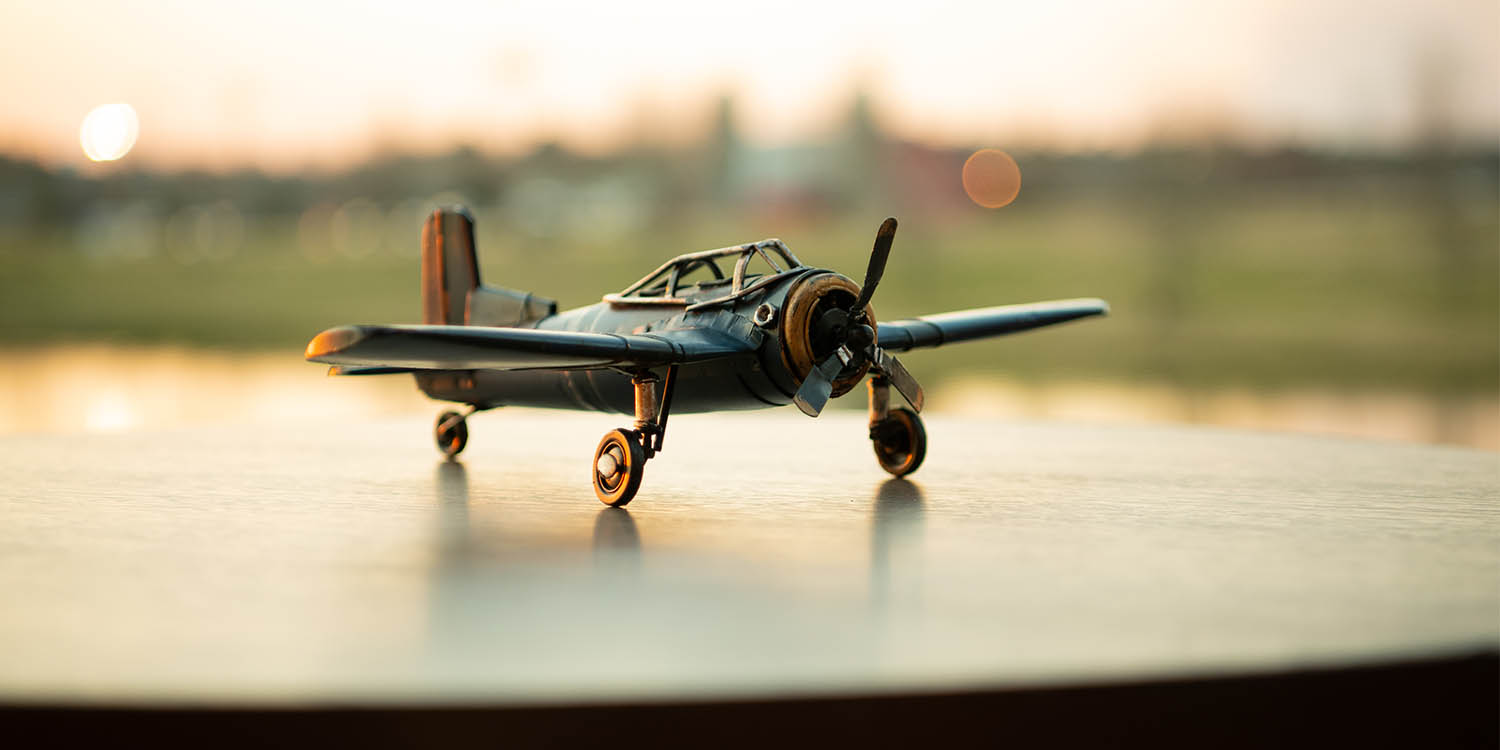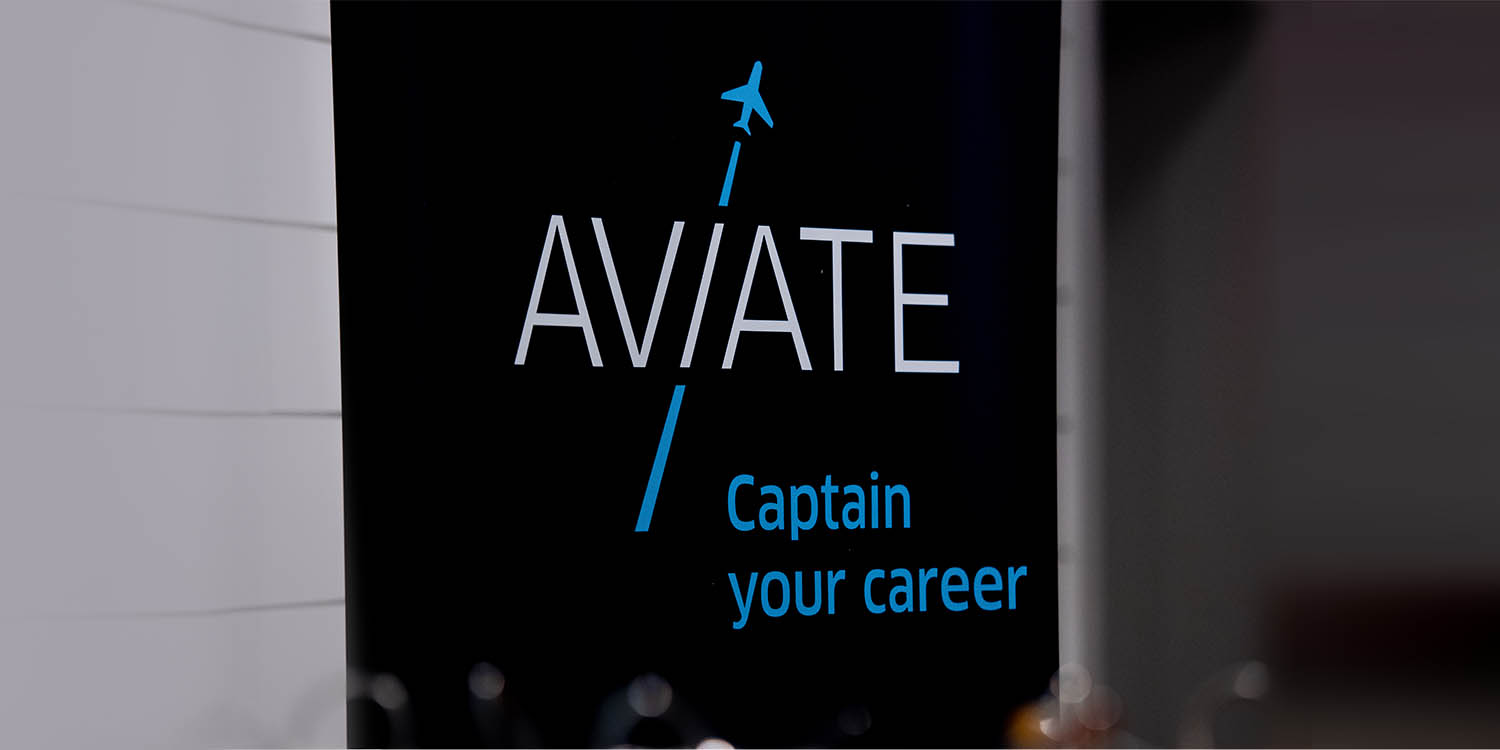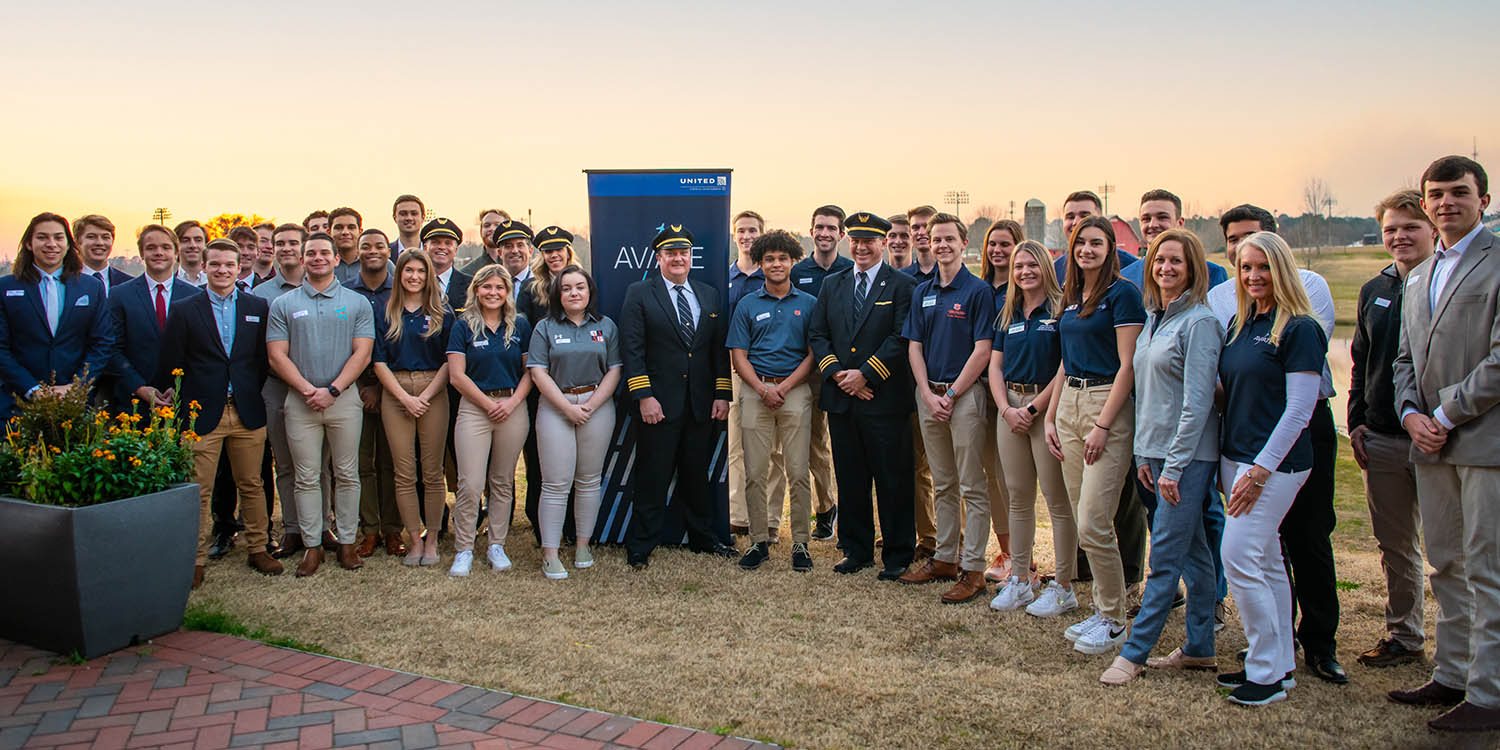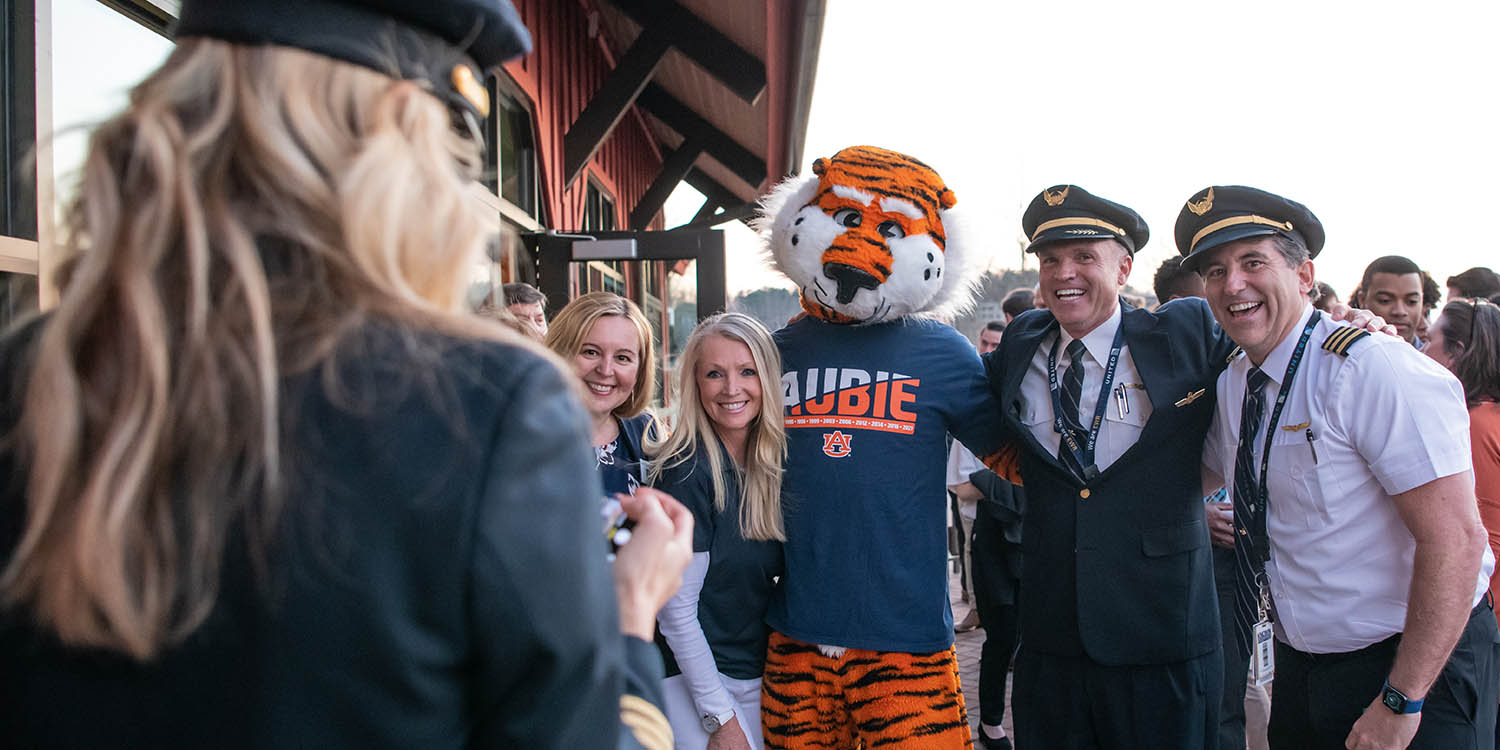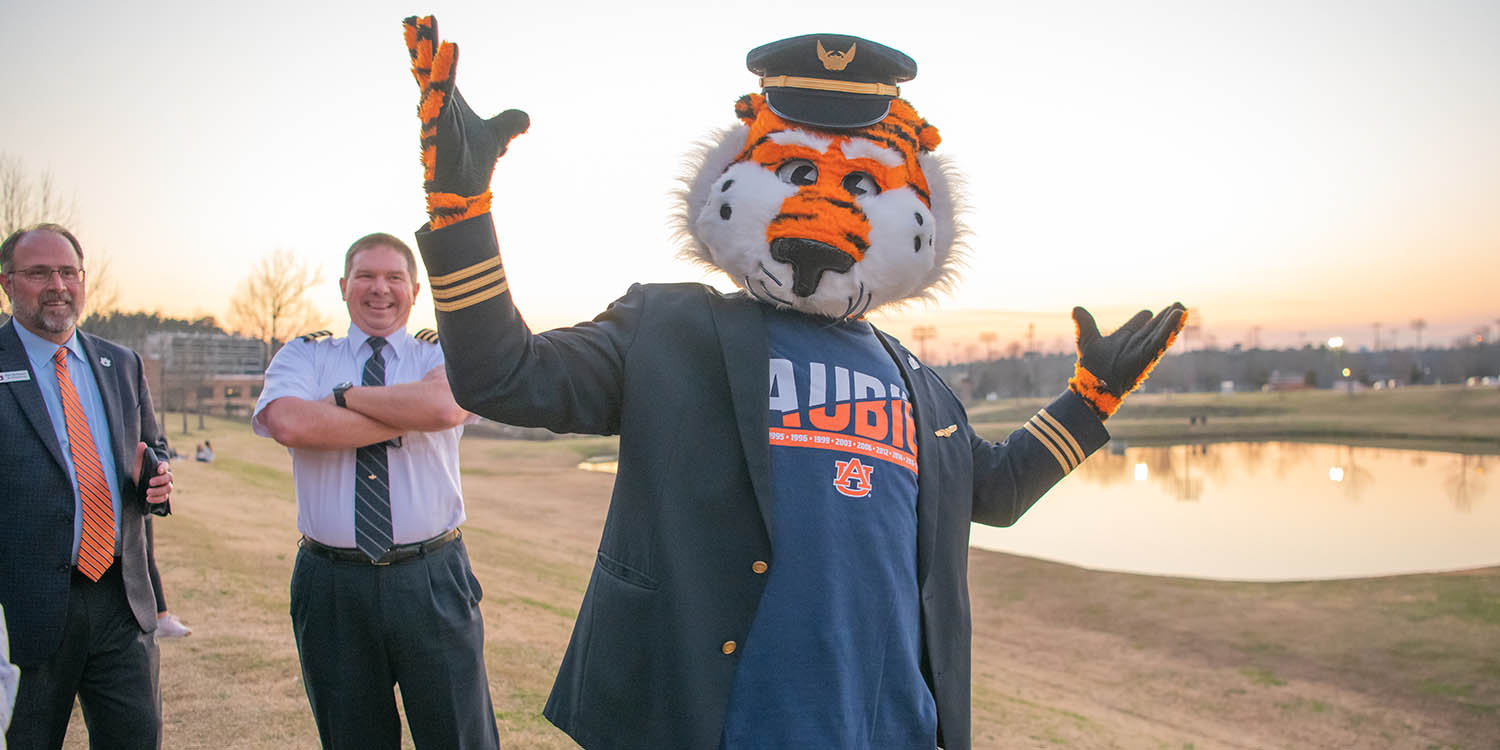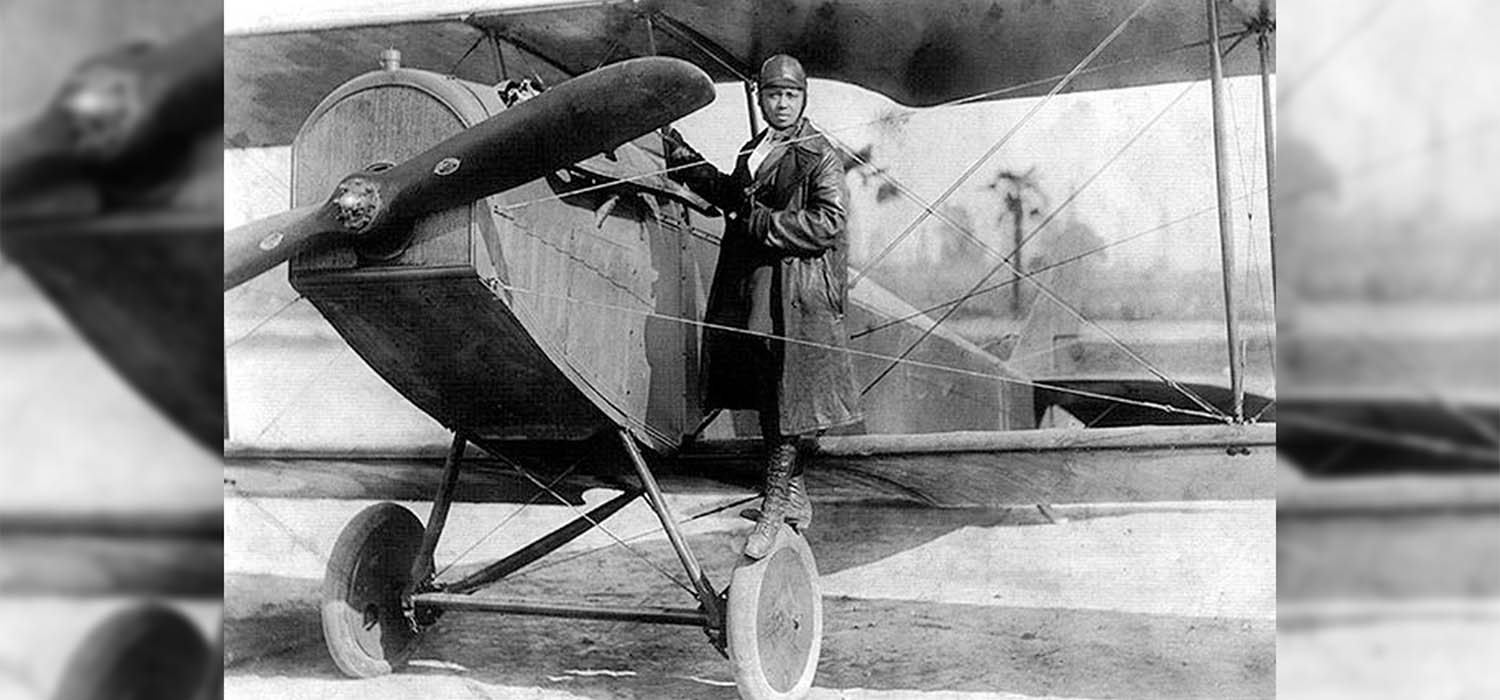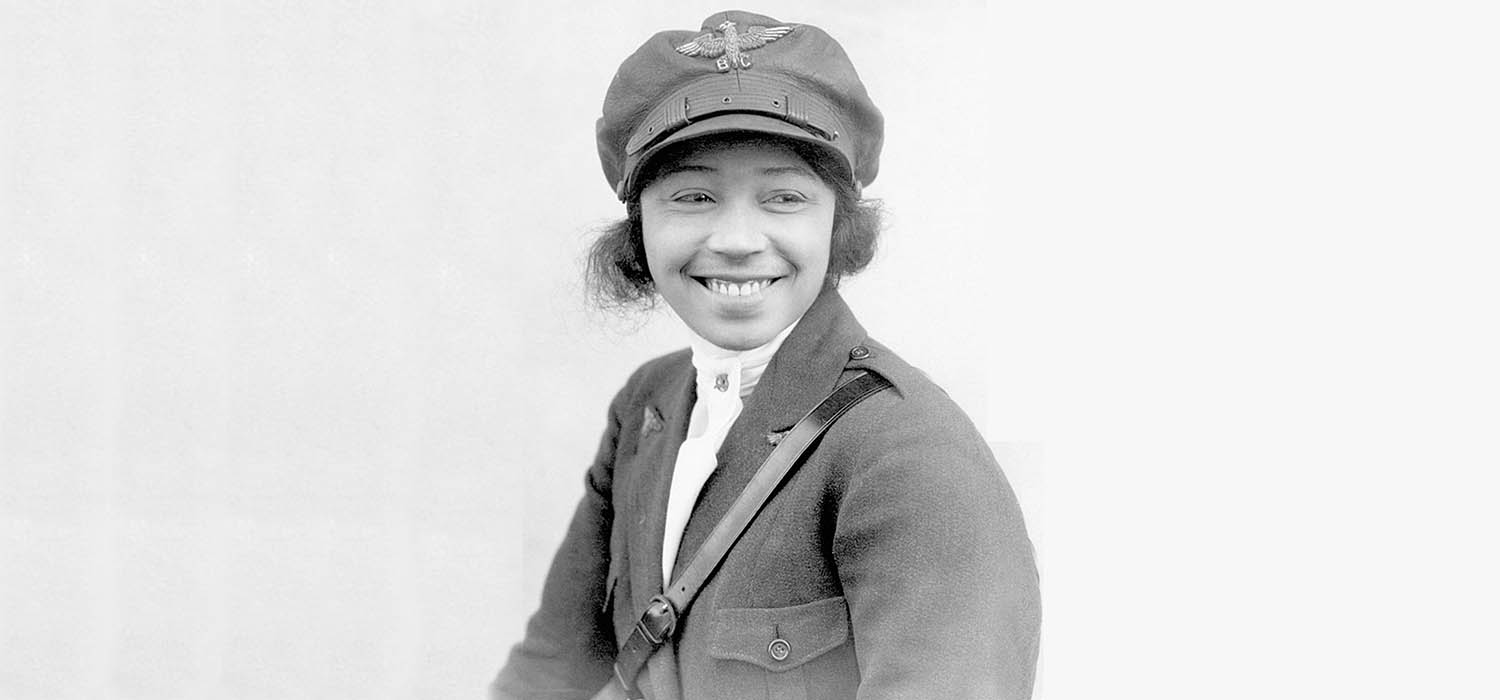Prepare for Takeoff

he School of Aviation at Auburn University reached outstanding heights this year. Students were honored for their skill and courage, partnerships with commercial airlines gave students a direct path to flight decks and a new scholarship fund will support students in the name of an aviation legend. As Auburn Aviation looks to the horizon, the future is bright with opportunity for its students.
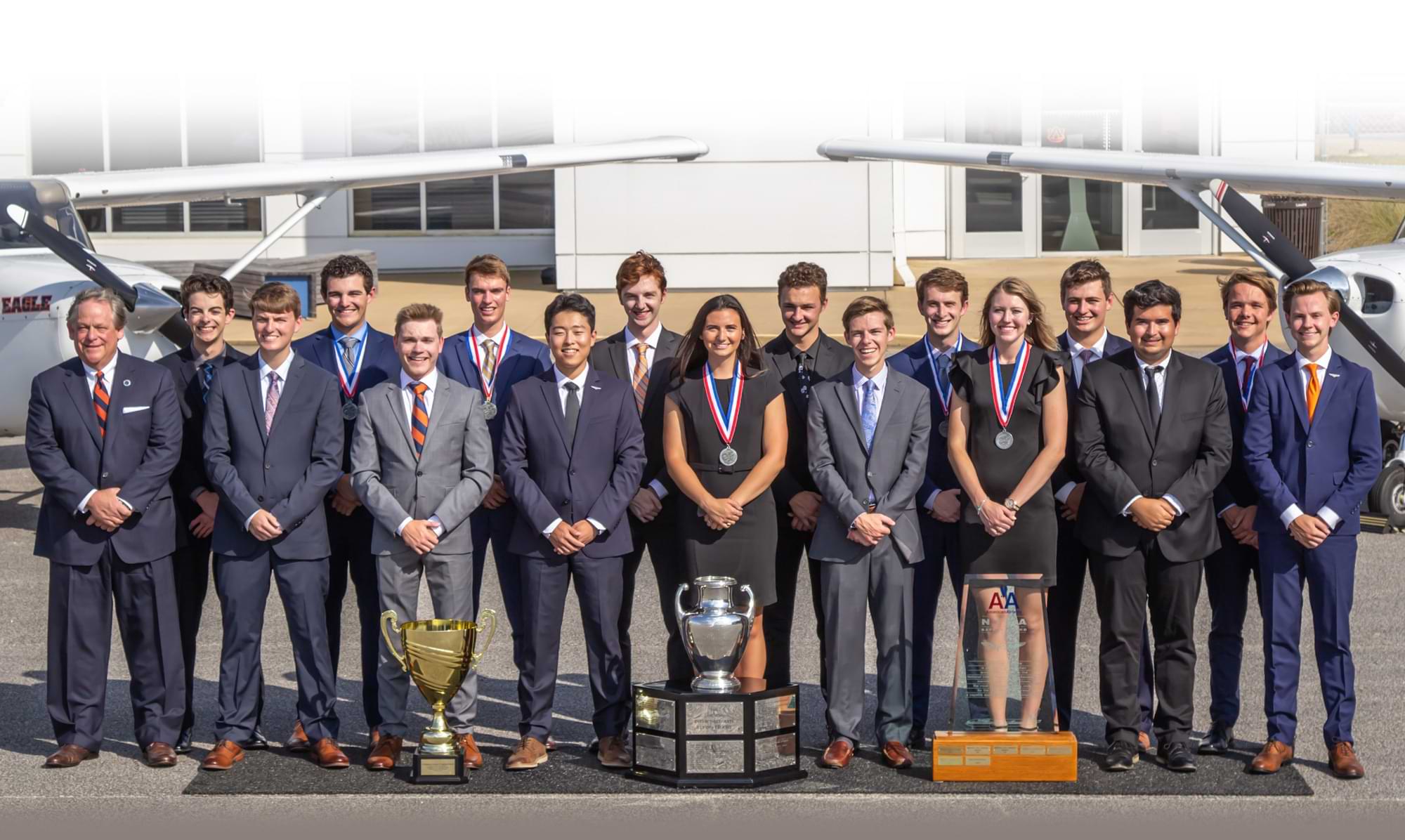
The Loening Trophy
The War Eagle Flying Team is a student-run organization for Auburn flight students passionate about aviation. Each year, the team competes in NIFA’s SAFECON, a national competition for collegiate aviators. Teams and individuals are judged on academics, safety, professionalism and more, and this year, the War Eagle Flying Team took the top prize.
The Loening Trophy, collegiate aviation’s oldest and rarest award, was first awarded in 1929 by a judging panel that included aviation legends such as Charles Lindbergh and Amelia Earhart. The award itself is named after Grover Loening, an aeronautical engineer who worked with the Wright Brothers.
In addition to the Loening Trophy, the War Eagle Flying Team won the American Airlines Safety Award, Competition Safety Award and Collegiate Aviation Progress Award in the team category. Individually, team members were awarded numerous top-10 placements at the competition, which hosted more than a hundred entries across events.
Iron Eagle Award
Their training and experience as Auburn University School of Aviation pilots were put to the ultimate test June 16 with a challenge all aviators hope they never face. With Hearn at the controls and Moorman in the co-pilot seat, their single-engine Skyhawk experienced complete engine failure 5,000 feet above Tallahassee, Florida. The two Tigers were forced to think quickly and keep their cool as they worked to find a place to land without a functioning engine.
The pilots—who had been on their way to the start of the 2022 Air Race Classic competition in Lakeland, Florida—found an open field to utilize and performed the impromptu landing without incident. Both aviators and the plane were no worse for wear when the aircraft came to a stop in the grassy field.
The successful outcome served as an example of how powerful experience and proper training can be when a pilot is under duress.
“It was definitely a roller-coaster ride,” Hearn said of the incident. “At the end of the day, we did what probably any other pilot would have done, but it just happened to be us. When everything started happening, the uncertainty was the scariest part, and it was a relief when we saw the field and landed. When we landed, we were just so excited to be in one piece and alive.”
Three of their fellow War Eagle Women pilots—Ashley Baldwin, Meg Cooper and Elaina McKenna—received “Wingman” awards for returning to the Tallahassee airport to comfort and support their teammates.
Following the emergency landing in June, the Hearn-Moorman tandem decided almost immediately to continue on to the Air Race Classic, where they used another plane to finish second in the nation among collegiate teams.
Airport Disaster Drill
The disaster situation included two planes about to collide on the same runway after a communication lapse, when one aircraft braked too fast and started to tailspin. The aircraft crashed on the side of a runway and caught fire. To simulate the situation, an old shell of a helicopter was set on fire under strict safety guidelines and supervision from the Fort Benning Fire Department.
As if it were a real emergency, students enacted a plan they’d worked on all semester in conjunction with the community’s emergency services. Aviation management alumna Kate Andreone, who served as a public information officer during the simulation, said the success of the disaster drill hinged on teamwork.
“What I learned from the simulation is that everyone truly has to work together,” Andreone said. “Everyone had their own role to play, so this simulation was designed as a learning opportunity for not just the students, but really the whole community. And for our class, it’s a great thing to learn now and be ready to go into the real world prepared for this kind of situation.”
United Aviate
The Aviate program, offered at only seven other universities in the country, connects aviation students with United pilots, travel privileges and career development opportunities. After graduation, participating Auburn students will fly for an Aviate United Express partner.
“The professional development and mentorship provided in the Aviate program provide experiential learning beyond the classroom, particularly with non-technical aviation skills such as leadership,” James Birdsong, Auburn Aviation program coordinator, said. “The United Aviate program creates a symbiotic relationship between the airline and participants. The airline recruits and develops highly qualified, well-educated pilots; participants earn the opportunity for a direct path to a United Airlines flight deck–a win-win for both parties.”
Upon successful completion of Aviate requirements, participants will transition to United as First Officers, then begin their journey toward becoming United Airlines captains.
“We are thrilled to partner with Auburn University and are confident they will be an invaluable asset to Aviate due to their innovative approach to the aviation market, prestigious reputation and rigorous training,” Capt. Curtis Brunjes, managing director of Aviate and pilot strategy for United Airlines, said. “We look forward to working with them and welcoming more pilots to the United family.”
Delta Propel
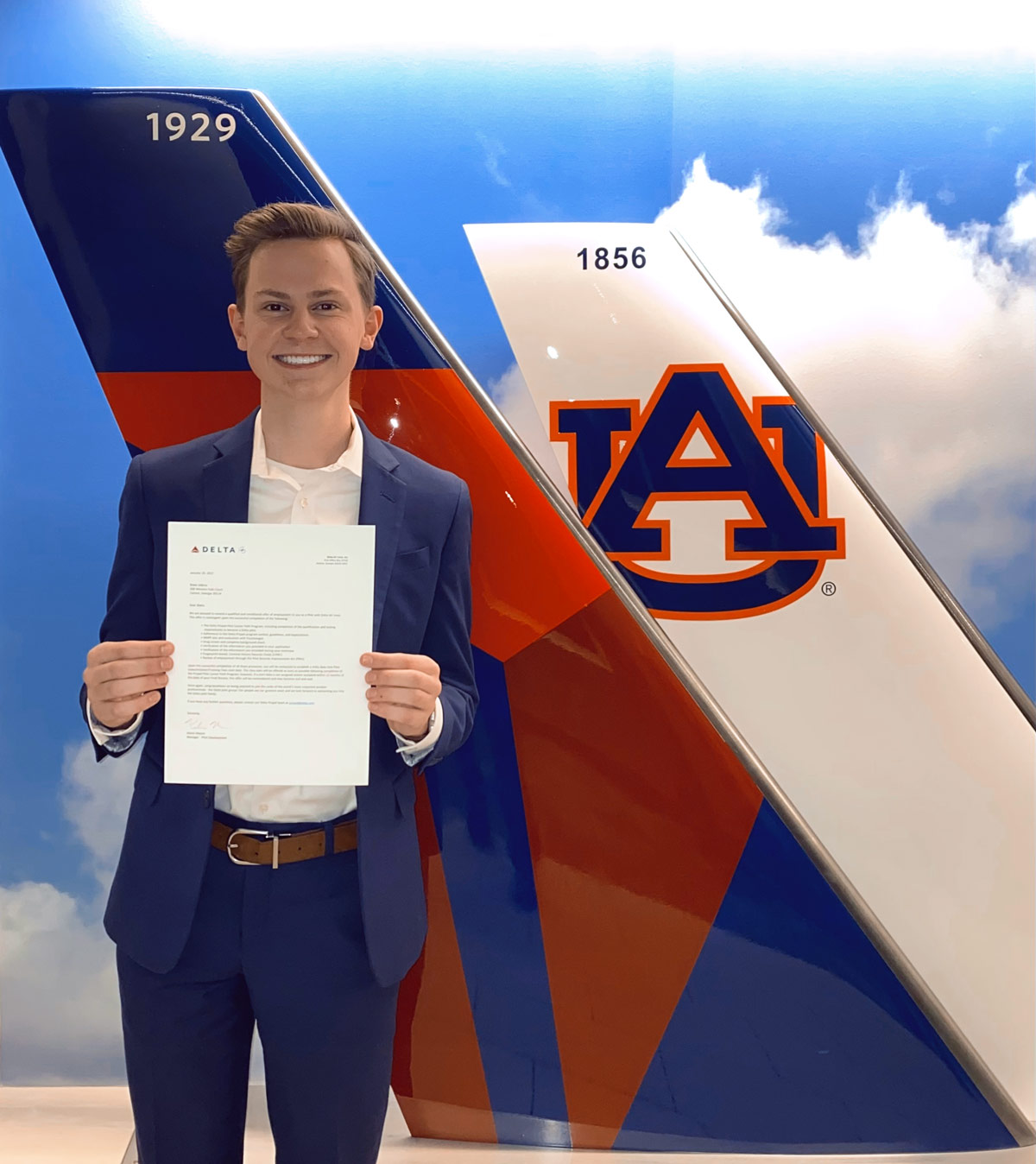
For Blake Adkins, a professional flight major who grew up near Delta’s headquarters, the opportunity solidified his decision to attend Auburn.
“Growing up, it was always my dream to be a Delta pilot,” said Adkins. “When Auburn began the partnership with Delta, I was in high school. I knew coming to Auburn would give me the best opportunity to see my dream come true.”
Auburn is one of only 14 universities in the nation, and the only in the SEC, that partners with Delta to secure career placements for students through the Propel program.
“We’re proud to partner with outstanding universities like Auburn around the country to give aspiring pilots a clear and defined path to a Delta flight deck,” said Patrick Burns, Delta’s vice president of flight operations and system chief pilot. “We’re looking forward to welcoming even more Tigers to our Delta family as we continue to bring the world’s best aviators to the world’s best airline.”
In addition to the qualified job offers, Propel students receive leadership development and personal mentoring from active Delta pilots.
Auburn and Delta have a long-standing relationship that has served students for many years. In 2018, Delta Air Lines, The Delta Air Lines Foundation and the Jacobson Family Foundation granted $6.2 million to support multiple programs at Auburn. The gift funded the construction of the Delta Air Lines Aviation Education Building, which serves as the home to the School of Aviation. It also funded the purchase of an aircraft simulator and created endowed faculty professorships in the School of Aviation.
Bessie Coleman Annual Scholarship
The Bessie Coleman Annual Scholarship, established by Walt and Ginger Woltosz, will be awarded to Auburn students in professional flight and aviation management. Their annual gift of $100,000 is expected to support up to 10 students each year.
“I have been extremely fortunate to be able to satisfy my passion for flying, and we love sharing the experience with others,” Walt Woltosz said. “Our goal with the Bessie Coleman scholarships is to allow students who could not otherwise afford to attend Auburn to be able pursue their dreams. The professional flight program is expensive, and the costs alone could turn many students away. A prospective student who dreams of becoming a professional pilot and has the aptitude and attitude to be successful, but is forced to give up their dream, is heartbreaking.”
The scholarship fund is named after Bessie Coleman, born of an African American mother and Native American father in 1892. In 1921, Coleman became the first American of any race or gender to hold an international pilot’s license from the Federation Aeronautique Internationale in France. She is remembered as an iconic aviator who performed dangerous air shows and an activist who refused to perform at venues where guests of color had to enter through different gates.
“This scholarship means a ton to me, and to be one of the recipients of the first ones makes it even more special. Bessie Coleman is a very important person in aviation history and to be chosen to receive a scholarship in her name is an honor,” professional flight senior Kadon Luke said. “After learning about her commitment to becoming a pilot despite everything against her, it gives me motivation to keep pushing through my training and go into an industry where sometimes I may feel like an outlier.”
